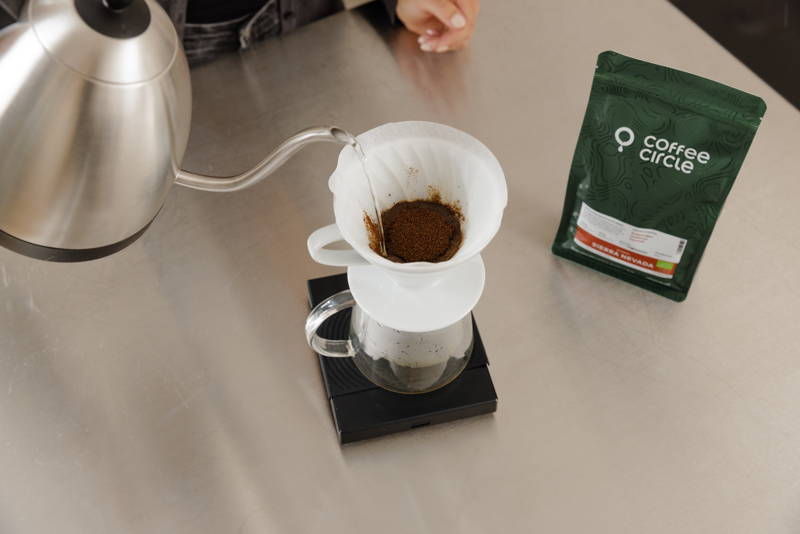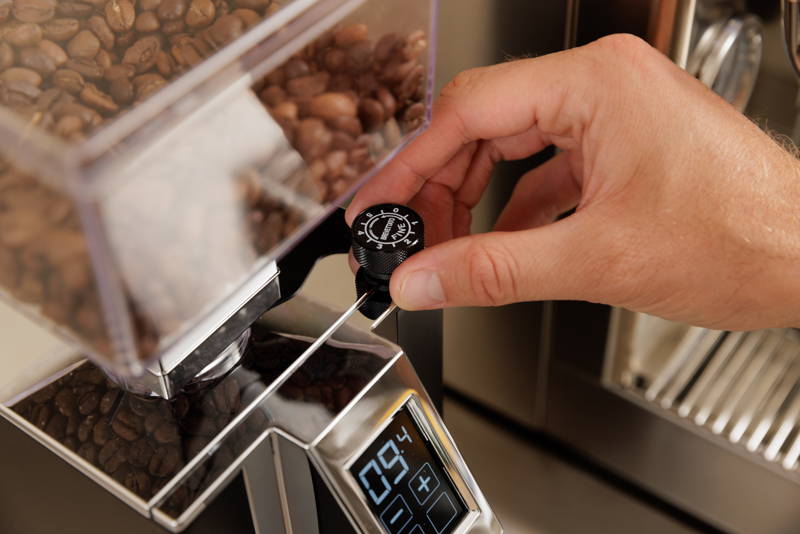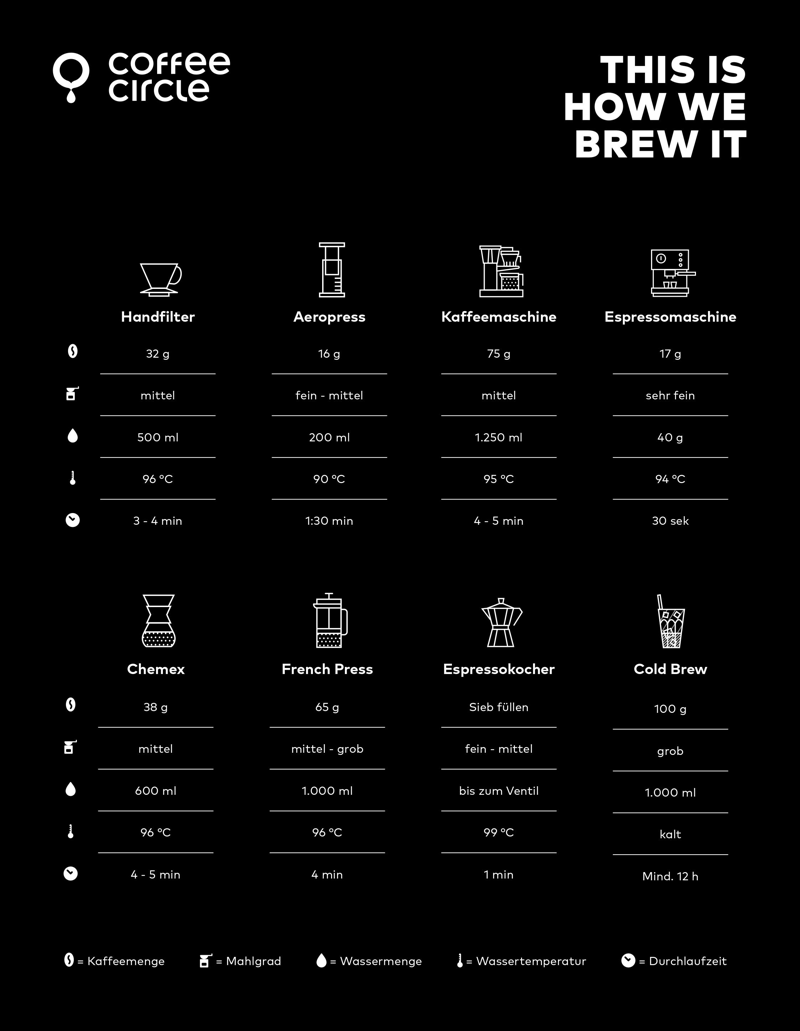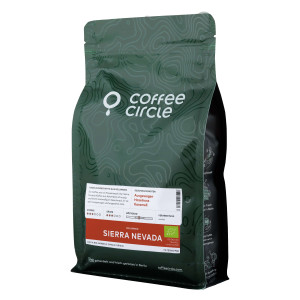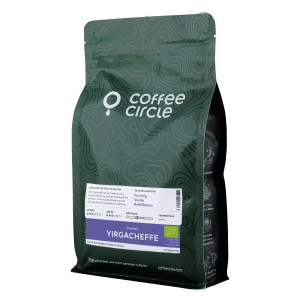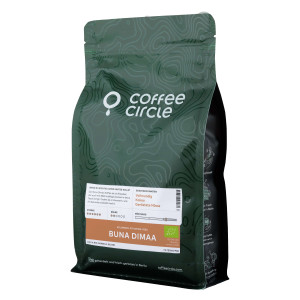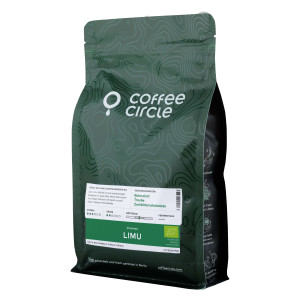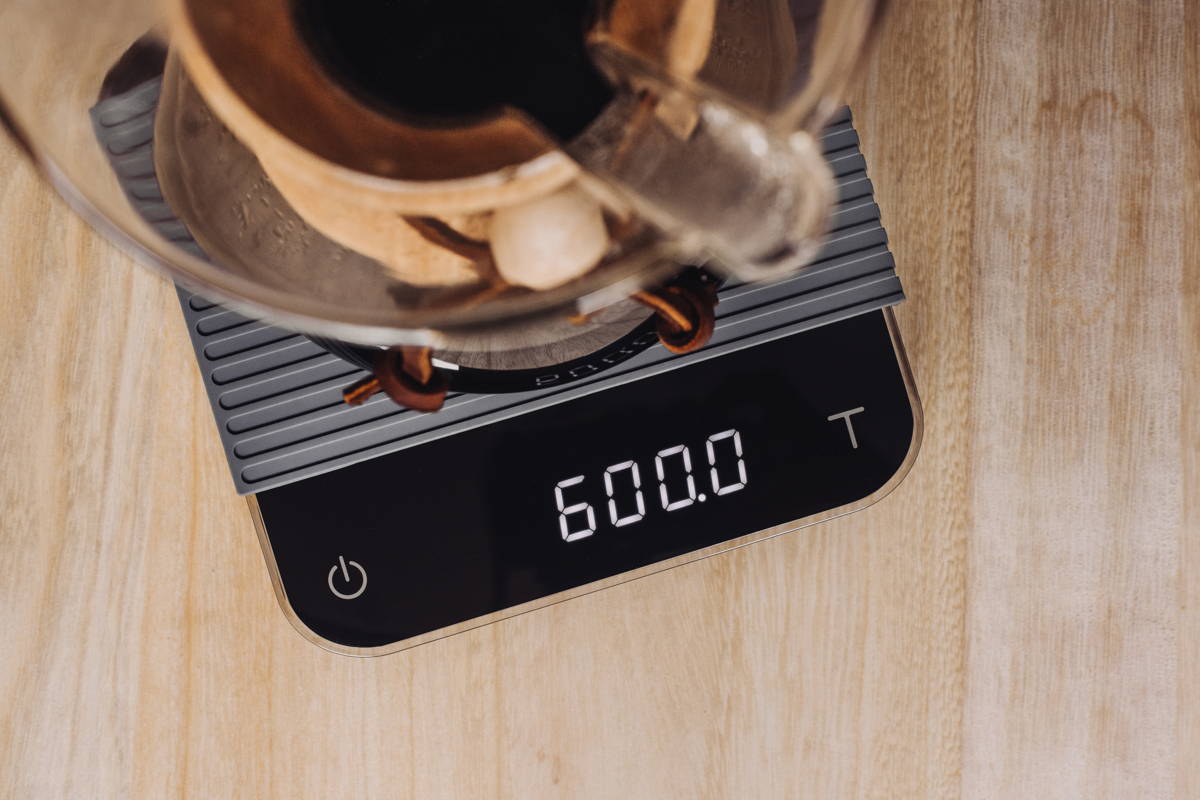
How much ground coffee per cup? The perfect coffee ratio
The right ratio of coffee to water is essential for a successful coffee preparation. A kitchen scale can help you to keep exact quantities. For those who don’t have kitchen scales at hand, we give helpful tips on how many grams of coffee fit on a spoon and how many spoons of coffee powder you need for one cup or one litre of filter coffee.
In this article:
How to dose your coffee - without kitchen scales
For every 200 ml cup of coffee you need about one full tablespoon of coffee powder. If you want to make a whole litre of filter coffee at once, we recommend using seven tablespoons of ground coffee.
Table 1: Filter coffee dosage in spoons
| For one cup (200ml) | For 1 liter | |
|---|---|---|
| Number of tablespoons (full heaped) | 1 - 1,5 | 5,5 - 7 |
| Number of portion spoon (7 g) | ~ 2 | ~ 9 |
| In Gramm | 12 g | 65 g |
For the specification of the coffee quantities we have decided to use a fully heaped standard tablespoon (see 2nd photo). All specifications are for a filter coffee roast of medium grinding degree.
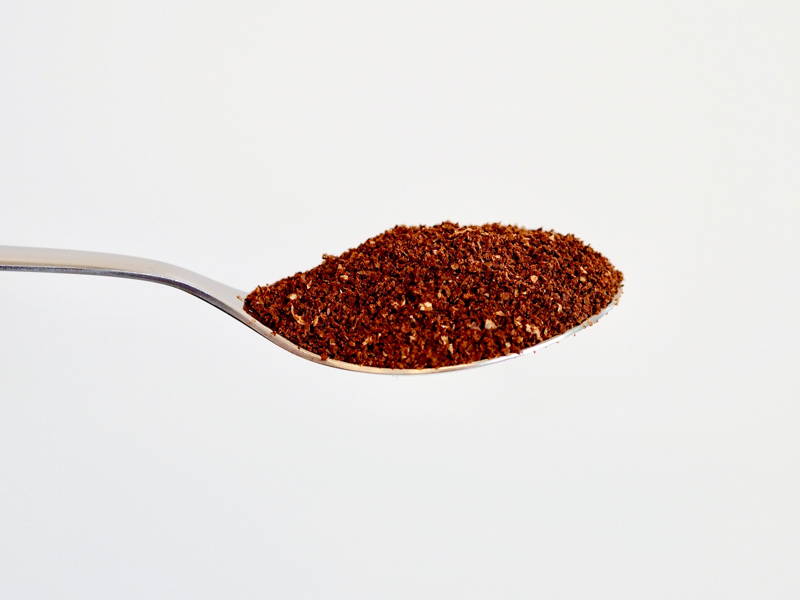
tablespoon slightly heaped
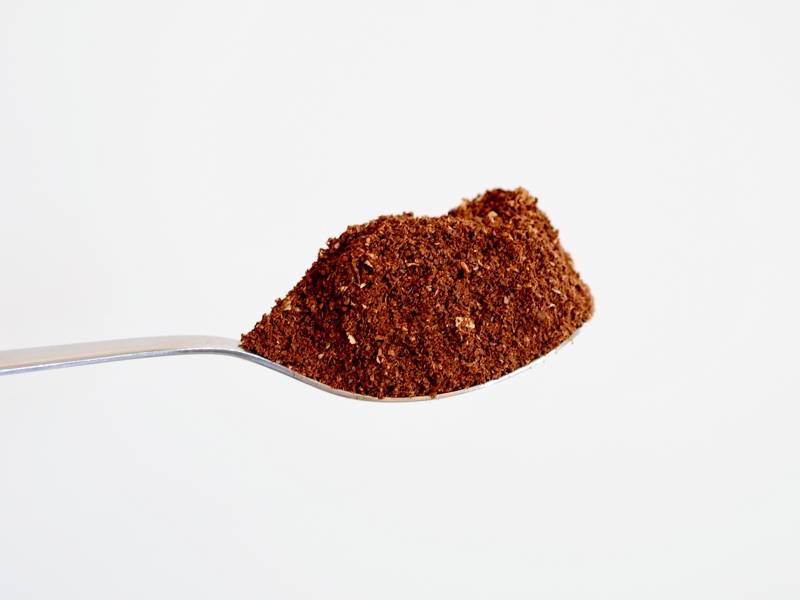
tablespoonful heaped up
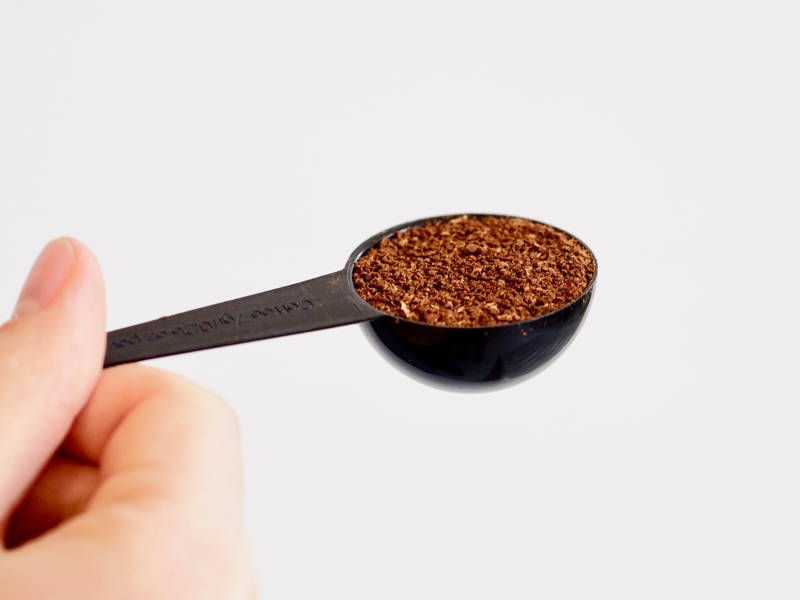
Coffee dosing spoon deleted
Tip: If you decide to always measure your coffee with measuring spoons, we recommend weighing the coffee portion per spoon once. That way you know how many grams of your favourite coffee fits on your spoon.
Our preparation tips for hand filters, French Press and Co.
Coffee dosage for all preparers
The following table shows you the quantities of coffee required per brewer. Here, too, we assume full tablespoons (see 2nd photo above). For preparation in the French Press and the Bayreuth pot, grind your coffee a little coarser than for preparation in the hand filter. This way the coffee is extracted more evenly and tastes more nuanced.
Table 2: Coffee dosage for different preparers
| Preparer and water quantity | Amount of coffee | Amount of coffee in tablespoons (full heaped) |
|---|---|---|
| Hand filter (500 ml) | 32 g | 3 - 3,5 |
| French Press (1000 ml) | 65 g | 7 - 8 |
| Chemex (600 ml) | 38 g | 3,5 - 4,5 |
| Coffee maker (1250 ml) | 75 g | 6,5 - 8 |
| Espresso maker (up to the valve) | Fill sieve | Fill sieve |
| Bayreuth pot (350 ml) | 22 g | 2,5 - 3 |
| Espresso machine (40 g) | 17 g | ~ 1,5 |
When you get right down to it – think in grams!
The dosage of coffee powder always depends on the amount of coffee to be brewed. The Americans call this the „Brewing Ratio“, i.e. the ratio of coffee to water when brewing. The SCAE (Speciality Coffee Association of Europe) recommends using 60 grams of coffee per litre of water. For a cup size of 200 millilitres you therefore need twelve grams of coffee powder. This ratio should be taken as a guide that you can adjust to suit your taste.
For our own coffees, however, we recommend a slightly higher dosage so that their fine nuances of taste are better accentuated: For filter coffee we use about 65 grams of coffee per litre of water. We have summarised our recipe recommendations for all common coffee makers – you can print out the This Is How We Brew It poster and hang it up in your kitchen.
Unfortunately, most of the instructions supplied with coffee makers contain dosage information such as „two level spoons per cup“. Some coffee makers also include portioned spoons for dosage. When preparing really good coffee, the dosage information of this type is not accurate enough. We therefore advise you to prepare the coffee with the help of a coffee scale. It is a simple and practical tool that helps you to achieve a constant coffee quality – and besides the grams, it also measures another important factor: the extraction time.
That's how you simply dose with your kitchen scales
- Weigh the required amount of coffee beans and then grind your coffee fresh.
- Place your coffee maker with the freshly ground coffee on the scale and tare it.
- Pour the coffee water slowly and in small steps. The scale measures how much water you have already poured in. So you know when you can stop pouring – and when you have reached your optimum ratio of coffee to water.
5 tips for better coffee
What is the problem with imprecise quantities?
Coffee beans have a different structure: different coffee varieties have unalike shapes and sizes – in addition, the type of roasting also has an influence on the size of the beans.
In the picture you can see 200 grams of Indian Monsooned Malabar beans in the left glass, and 200 grams of our Limu beans the right one. As the Limu beans are denser, the right jar has to be filled less high to achieve the same weight. So if you measure your coffee beans with a portion spoon, the gram numbers will differ depending on the coffee bean, i.e. the amount of coffee powder.
